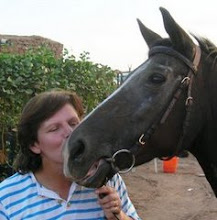General sense of well-being.
Exercise in the fresh air of a farm/ranch, away from hospitals, doctor’s office, therapy rooms, or home help to promote a sense of well-being.
Improved self-confidence
Confidence is gained by mastering a skill normally performed by able-bodied people. The ability to control an animal much larger and stronger than oneself is a great confidence builder. Participating in events like play days add to the sense of achievement.
Increased interest in the outside world.
For those confined by a disability, the world tends to shrink in size. Riding increases interest in what is happening around the rider, as the children explore the world from the back of a horse. Even exercising becomes interesting when done on horseback.
Increased interest in one's own life.
The excitement of riding and the experiences involved stimulate the child, encouraging the rider to speak and communicate about it.
Improved risk-taking abilities.
Riding is a risk sport. The child learns to master fears though the act of staying on the horse, as well as attempting new skills and positions on the horse.
Development of patience.
Since the horse has a mind of its own, a child learns patience as he or she attempts to perform skills on the horse when the horse is not cooperating. Repetition of basic riding principles also helps to develop patience.
Emotional control and self-discipline.
The child quickly learns that an out-of-control rider means an out-of-control horse. Shouting, crying, and emotional outbursts upset the horse, which in turn frightens the rider. Children learn to control these emotions and appropriately express them.
Sense of normality.
By being able to master a skill considered difficult by the able population, the child experiences him/herself as being normal.
Expansion of the locus of control.
The child begins to view him/herself as having control over his/her world as control over a powerful animal increases.
Sunday, June 14, 2009
Subscribe to:
Post Comments (Atom)



No comments:
Post a Comment